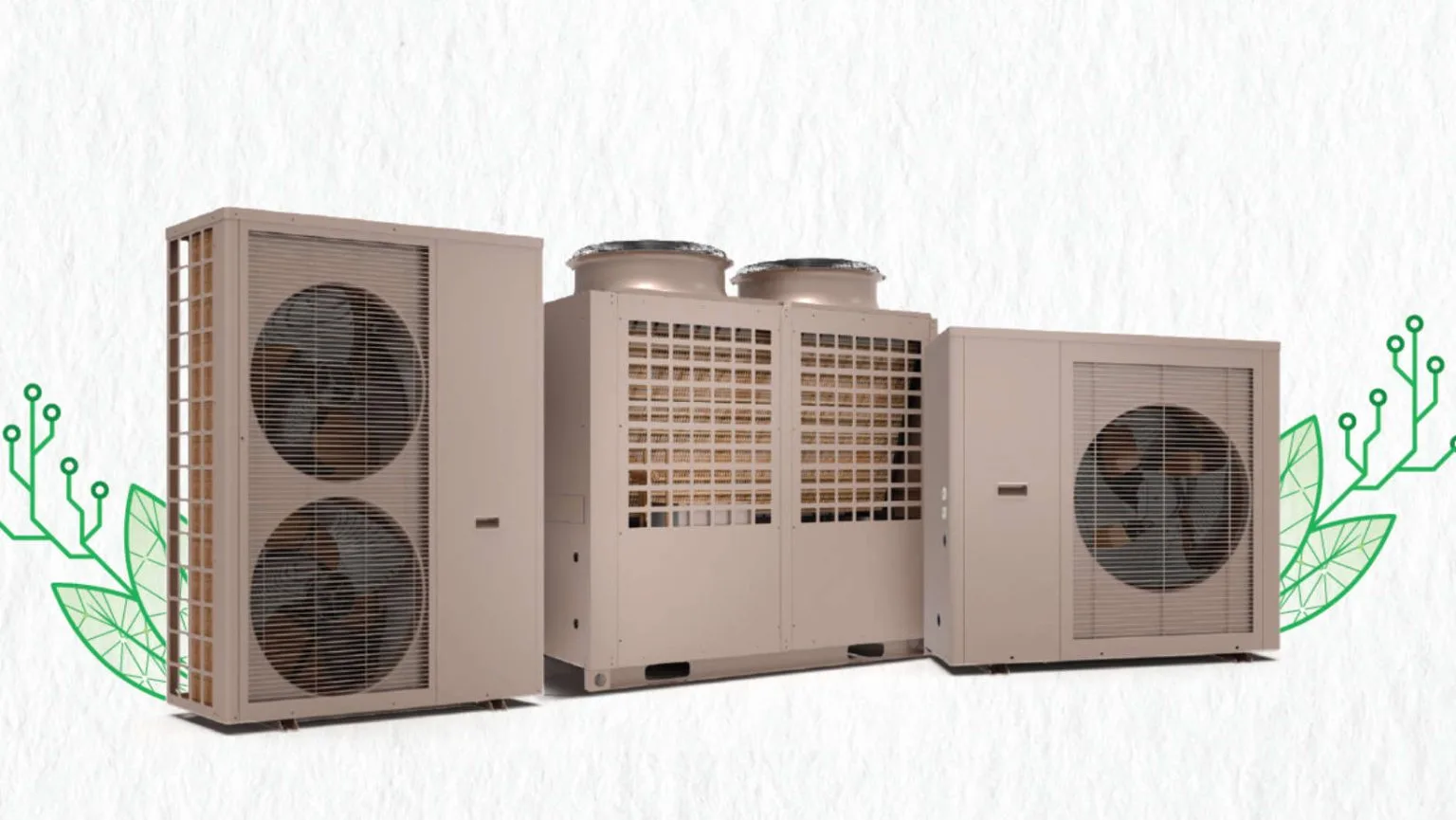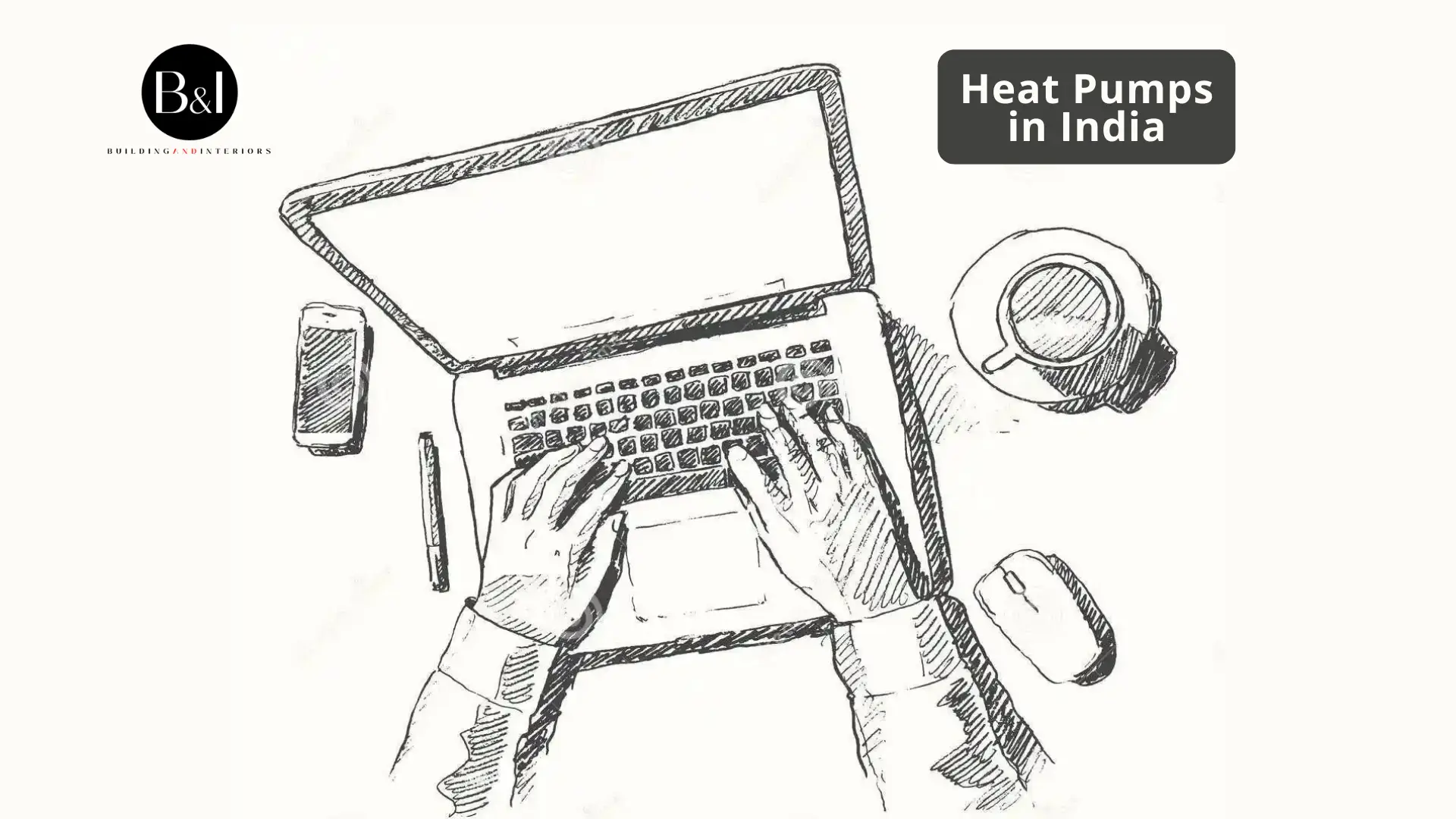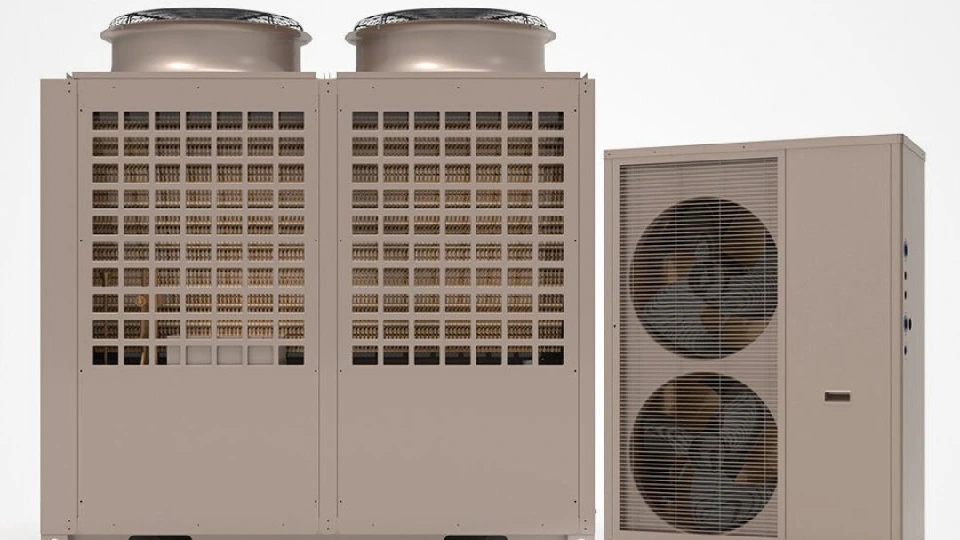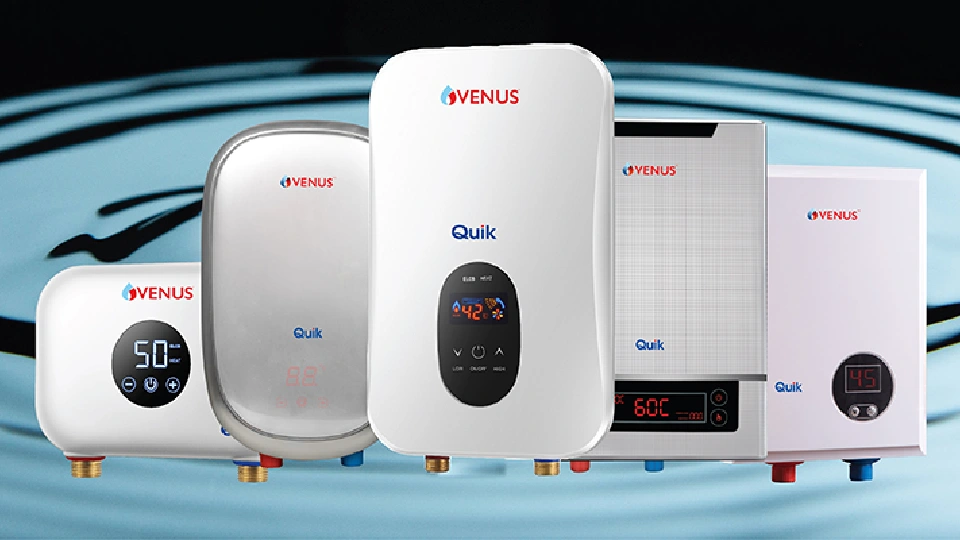Heat pump water heaters are a significant technological advancement in residential and commercial water heating methods. These appliances use electricity to transfer heat from the surrounding air into the water tank, making them highly efficient compared to traditional water heaters. Buying a heat pump water heater is not an easy job. Many factors need to be kept in mind before finally deciding on a model. One such factor is the capacity of the heat pump. In this article, we’ll explore the significance of capacity selection, sizing, key factors while choosing, and how Racold’s range of heat pumps, available in 150, 200, and 300-litre capacities, can meet diverse requirements
What is a heat pump water heater?
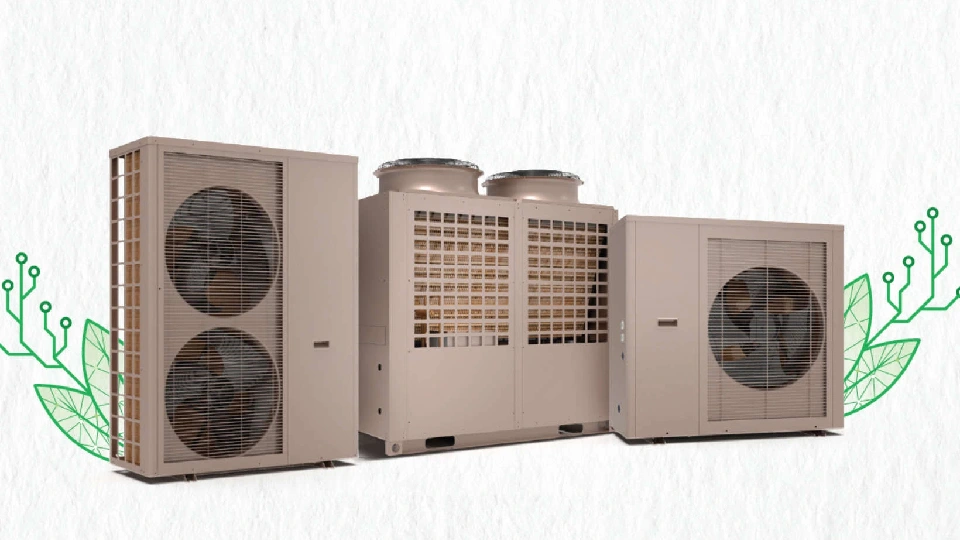
A heat pump water heater takes heat from the air and uses it to warm up the water in the tank. It pulls in air, which passes over a refrigerant in an evaporator. The refrigerant is then compressed, turning it into a hot gas. This hot gas moves through a coil, which is wound around the tank and heats the water. This process is fundamentally more efficient than conventional methods because it moves heat rather than generating it directly. Heat pump water heaters usually come with a backup electric element coil heater for periods of high demand or low ambient temperatures.
Importance of heat pump water heater capacity selection
In India, heat pumps are available in the following capacities:
- 150 litres
- 200 litres
- 300 litres
- 500 litres
- 1000 litres
When choosing the capacity of a heat pump in India, it’s crucial to conduct a thorough capacity calculation. This ensures that the heat pump meets the specific needs of the space without overloading the system or underperforming. Proper capacity selection helps optimize energy efficiency, reduce operational costs, and ensure the equipment’s longevity. Choosing the correct sizing from available options can significantly impact the comfort and cost-effectiveness of the heat pump installation.
Meeting the desired demand
Selecting the correct capacity ensures that the heat pump water heater can meet the hot water needs of households or commercial establishments without running out frequently. If the capacity is not enough, it would cause discomfort and inconvenience to users, whereas excessive capacity leads to unnecessary energy consumption and higher operational costs. The table below depicts the average consumption of water in day-to-day household chores:
| Activity | Average consumption of water (in litres) |
| Showering | 75-90 |
| Dishwashing (by hand) | 30-100 |
| Washing machine (clothes) | 95-150 |
| Running the washbasin (bathroom) | 3-7 per minute |
Energy efficiency
A properly sized heat pump water heater operates within its optimal efficiency range. Oversized units tend to cycle on and off more frequently, leading to energy wastage and unnecessarily high energy bills. On the other hand, undersized units may struggle to meet demand, operating continuously and inefficiently.
Also, when selecting a heat pump, it’s important to consider its Coefficient of Performance (COP). COP is a measure of a heat pump’s efficiency, representing the ratio of heat output to the amount of electrical energy input. A higher COP indicates a more efficient heat pump, as it can produce more heat for less energy consumption. For optimal performance and energy savings, choose a heat pump with a high COP. This ensures that you get the most heat for your energy expenditure, reducing overall operating costs and contributing to more sustainable energy usage.
Longevity and maintenance
Choosing a heat pump water heater that has the right capacity and sizing for your needs means it won’t be overworked. This helps it last longer and cuts down on how often you’ll need to fix or maintain it. Units that are too small are susceptible to overworking, leading to increased wear and tear.
Factors influencing the capacity selection of heat pump water heaters
Size of the household/establishment
The number of occupants in a household directly impacts hot water demand. Similarly, commercial places such as hospitals, hotels, offices, etc. will naturally require a higher capacity heat pump water heater. For instance, a family of four typically has a greater hot water demand than a couple or an individual. On average, it is assumed that a person in India requires 40-50 litres of hot water while taking a bucket bath. Therefore, if there are 4-5 members in a family, a heat pump water heater of 250 litres of capacity must be chosen.
Hot water usage patterns
Understanding the desired hot water usage patterns is essential for accurate capacity selection. Activities such as morning showers, dishwashing, and laundry contribute to peak demand periods. Similarly, in hotels or hospitals, the usage of hot water would peak at certain hours of the day. In regions experiencing harsh winter seasons, the demand for hot water usage rises during those months of the year. All these factors need to be kept in mind while deciding on a heat pump water heater.
Number and type of hot water appliances
The number of taps that require hot water and appliances such as washing machines or dishwashers also affects the capacity selection of heat pump water heaters. Calculating the accurate hot water demand of all household appliances involves the estimation of combined peak hour usage when multiple activities coincide.
First-Hour Rating (FHR)
The First-Hour Rating (FHR) is an important criterion to be kept in mind for heat pump water heaters. It indicates the amount of hot water the heater can supply in the first hour of operation, combining the storage capacity and heating power. A higher FHR is essential for households with significant peak-hour demand.
Peak demand estimation
Estimating peak demand involves calculating the hot water usage during the busiest hour of the day. This estimate helps determine the minimum required capacity to avoid shortages. For example, during the morning rush, a family might use hot water for multiple showers, the dishwasher, and laundry simultaneously.
As a rule of thumb, a 200-litre heat pump water heater is typically suitable for a household of 4-5 members. For reference, a family of 2-3 members may require a 150-litre capacity heater, 4-5 members a 200-litre model, 6 or more members a 300-litre model, and so on. However, these guidelines are flexible and can vary based on individual needs.
Fixture and accessories
Various bathroom fixtures like faucets, showerheads, etc., significantly influence the amount of hot water required, which in turn affects your choice of heat pump. For instance, rain showers or hand showers, which have higher water flow rates, typically necessitate a larger capacity water heater – around 300 litres for a family of four. Additionally, the type of showerhead you choose affects the overall water consumption. A low-flow showerhead, commonly used in homes across India, consumes approximately 3.5 litres of water per minute, totalling around 35 litres for a 10-minute shower. In contrast, a standard showerhead uses about 5 litres per minute, resulting in 50 litres for the same duration.
When determining the capacity of your heat pump, account for the flow rates of your fixtures to ensure you select a model that meets your household’s hot water needs efficiently.
Racold heat pump water heaters
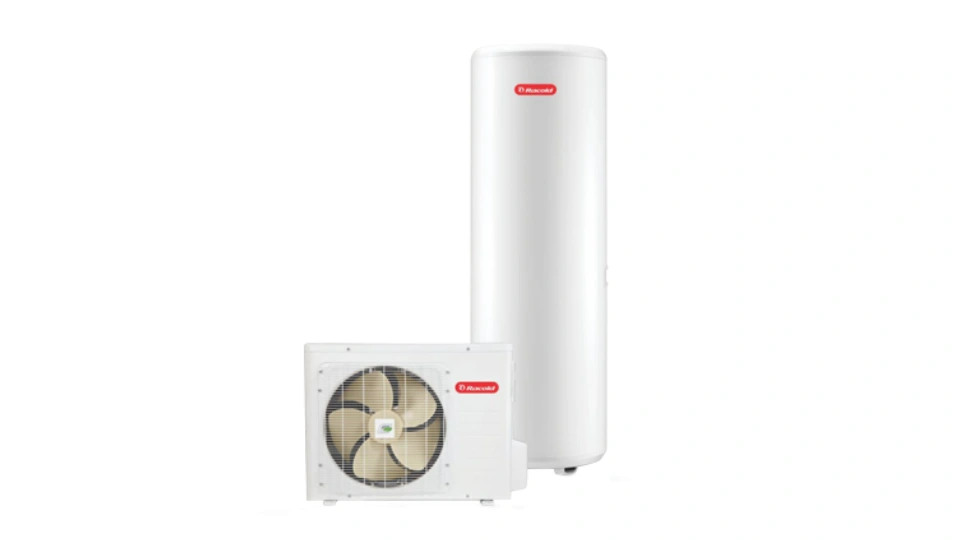
Racold, a trusted name in water heating solutions, offers a range of heat pump water heaters designed to cater to various household needs. Available in 150, 200, and 300-litre capacities, Racold’s HPWHs combine advanced technology with high energy efficiency, ensuring reliable and eco-friendly hot water solutions.
Its 150-litre capacity model is ideal for smaller households or those with moderate hot water needs, providing an efficient balance between capacity and energy consumption. This heat pump sizing is perfect for households with 2-3 members.
Next, the brand’s 200-litre capacity option is suitable for medium-sized households and can comfortably meet the hot water demands of 4-5 people. This capacity is excellent for families with higher hot water usage patterns, such as those with multiple bathrooms or frequent simultaneous appliance use.
Lastly, the 300-litre HPWH is suitable for larger households or those with high hot water demand. This size is ideal for families with 6 or more people or those who require large amounts of hot water, such as homes with multiple high-flow showers or hot tubs.
The capacity of water heaters required can vary depending on different geographies and fittings installed in a house. For example, a 300-litre capacity water heater can be used for only one bathroom if the person is showering with a body jet or rain shower.
The capacity selection for a heat pump water heater is important for a reliable supply of hot water, maximizing energy efficiency, and prolonging the unit’s lifespan. By considering factors such as establishment size, hot water usage patterns, FHR, and peak demand, users can make the correct choices that balance comfort and are also budget-friendly. Proper heat pump capacity selection not only improves daily convenience but also contributes to long-term savings and environmental sustainability.
Selecting the right water heater: Why are eco-friendly heat pumps a smart choice?
Water heaters have become a necessity for everyday comfort. Performing basic chores such as showering, washing clothes and di









